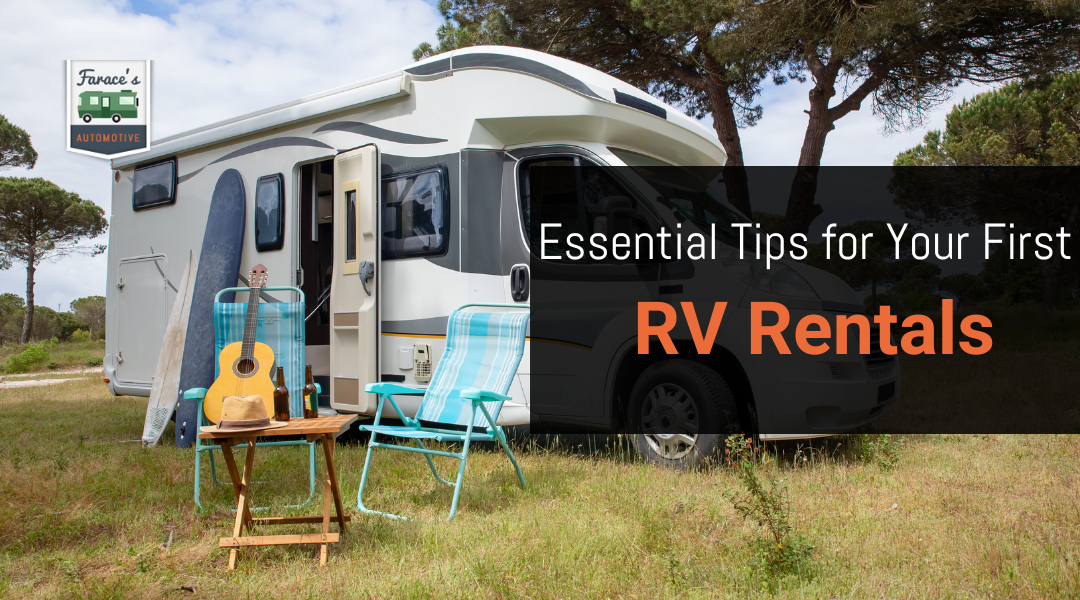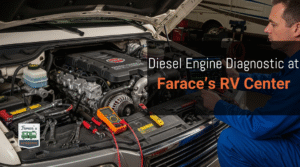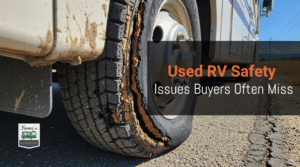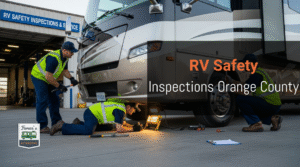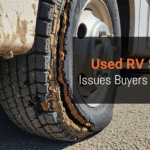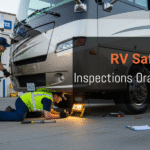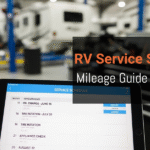Renting an RV for the first time can be an exciting adventure, but it can also feel overwhelming. Knowing the essential tips can help you navigate the experience with confidence and ensure your trip goes smoothly. Understanding what to look for in an RV rental, how to prepare for your journey, and what to expect while on the road will make all the difference.
Choosing a reliable rental company is key. With a trusted name like Farace Automotive & R.V. Center, located in Huntington Beach, you can rest easy knowing you’re supported by experts in the industry. They have decades of experience in RV repairs and maintenance, which means they can guide you through the rental process and help you prepare your vehicle for any adventure.
Be prepared to ask questions and communicate your needs to the rental agency. Every RV is different, and knowing the specific features and limitations of your chosen model is essential. This preparation helps ensure you have a memorable and enjoyable journey, allowing you to fully embrace the freedom that comes with RV travel.
Why Renting an RV Is a Great Choice for First-Timers
For first-time RV renters, choosing to rent an RV offers an exciting way to travel. You gain flexibility and control over your journey while often saving money compared to traditional vacations.
The Freedom of RV Travel
Renting an RV gives you the freedom to explore various destinations at your own pace. You can choose where to stop and for how long. Imagine waking up to a beautiful view of nature or a beach right outside your door.
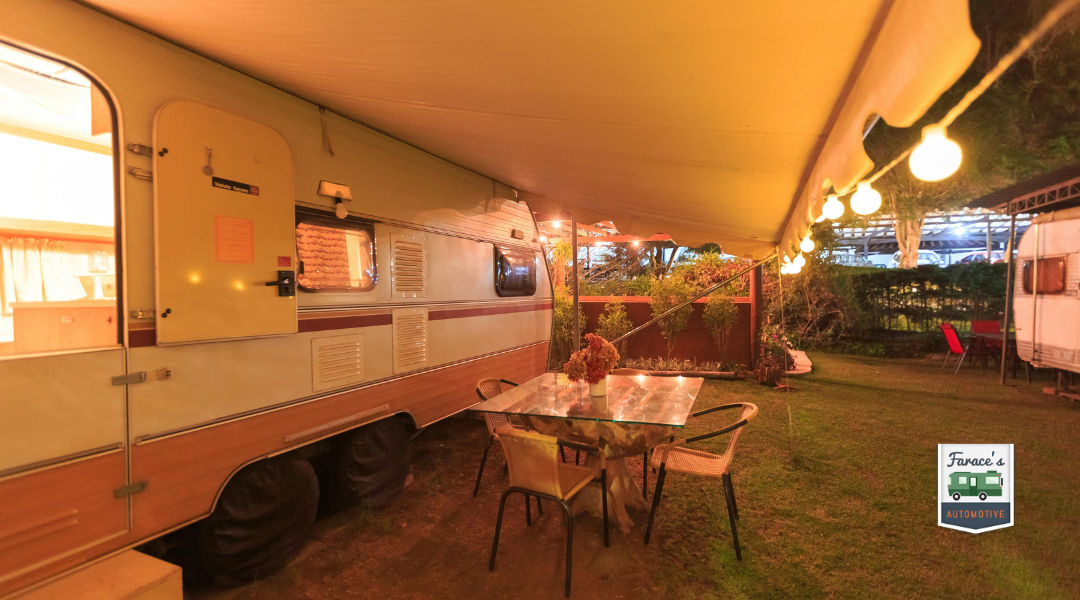
You can easily visit national parks, campgrounds, and hidden gems that are not accessible by traditional accommodations. This flexibility allows you to make spontaneous decisions on your trip.
Packing for an RV trip is simpler. You can bring all your essentials, like clothes, food, and outdoor gear. Many RVs come equipped with kitchens, bathrooms, and sleeping areas, making your travel more comfortable.
Cost-Effective vs. Traditional Vacations
Renting an RV can be more cost-effective than booking hotels and dining out for every meal. When you rent, you save on lodging costs by sleeping right in your vehicle.
Additionally, you can cook your meals in the RV, reducing food expenses. Many RV rentals offer ways to save, such as discounts for longer rentals or off-peak travel seasons.
Consider this: a family vacation to a theme park can quickly become expensive with tickets, hotels, and meals. In contrast, renting an RV allows broader access to multiple locations while controlling your budget.
Choosing the Right RV for Your Needs
When renting an RV for the first time, it’s crucial to understand the various types available, how size affects your experience, and what questions to ask before booking. Making the right choice can enhance your travel experience and ensure comfort on the road.
Types of RVs: Motorhomes, Trailers, and Campervans
There are three main types of RVs: motorhomes, trailers, and campervans.
- Motorhomes: These are self-contained vehicles, divided into three classes:
- Class A: Large and luxurious, suited for those who want comfort and amenities.
- Class B: Compact and easy to drive, perfect for couples or solo travelers.
- Class C: A mix of space and maneuverability, ideal for families.
- Trailers: These need to be towed by a vehicle. They come in various sizes:
- Travel Trailers: Versatile and available in several formats.
- Fifth-Wheel Trailers: Require a pickup truck and offer spacious living.
- Campervans: Smaller and more agile, suitable for quick getaways.
Choosing the right type will depend on your travel plans and group size.
Size Considerations: Balancing Space and Maneuverability
The size of the RV is critical. Consider how many people will travel with you.
- Sleeping Space: Ensure the RV has enough beds for your group.
- Storage: Check if there’s ample storage for gear and food.
Smaller RVs, like campervans, are easy to maneuver in tight spaces but may lack room for larger parties.
- Road Conditions: If you plan to drive in urban areas, a compact RV will be easier to handle.
- Parking: Factor in where you’ll park at campgrounds or sites.
Finding the right balance between space and maneuverability will make your trip more enjoyable.
Rental Checklist: What to Ask Before Booking
Before finalizing your RV rental, ask these important questions:
- Insurance: What type of insurance is included?
- Mileage Limits: Are there any restrictions on miles driven?
- Breakdown Assistance: Is roadside assistance available if needed?
Additionally, inquire about:
- Maintenance: When was the RV last serviced?
- Features: What appliances or amenities does it include?
Having this information ensures you’re well-prepared for your journey. Renting from a reputable shop like Farace Automotive & R.V. Center helps guarantee that you receive reliable assistance and support.
Understanding RV Rental Costs and Insurance
When renting an RV, knowing the costs involved and the insurance options available is essential. This knowledge can help you budget effectively and protect yourself during your travels.
Breaking Down Rental Fees and Hidden Costs
RV rental costs can vary widely based on the type of vehicle and rental period. Typical rates range from $50 to $275 per night, depending on the RV class. Additional fees may include:
- Mileage Fees: Many rentals charge per mile after a set limit.
- Prep Fees: These may cover cleaning and maintenance before you take the RV.
- Equipment Rentals: If you need extras like camping gear or kitchen supplies, these can add to your total.
- Labor Rates: Should repairs be needed post-rental, labor rates at service centers like Farace Automotive may apply.
Make sure to ask about all potential fees up front to avoid surprises.
Insurance Options: What’s Covered and What’s Not
Insurance is a crucial part of any RV rental agreement. Most rental companies offer basic coverage, but it’s vital to know what it includes.
Common types of coverage are:
- Collision Damage Waiver (CDW): Covers physical damage to the RV.
- Liability Insurance: Protects you against claims from third parties for accidents.
- Personal Accident Insurance: Provides medical coverage for injuries while using the RV.
Always read the fine print. Some policies may have exclusions or may not cover damages to personal belongings.
How Farace Automotive & R.V. Center Can Help with Inspections
Before you embark on your RV adventure, it’s a smart move to have your vehicle inspected. Farace Automotive & R.V. Center in Huntington Beach can help with this.
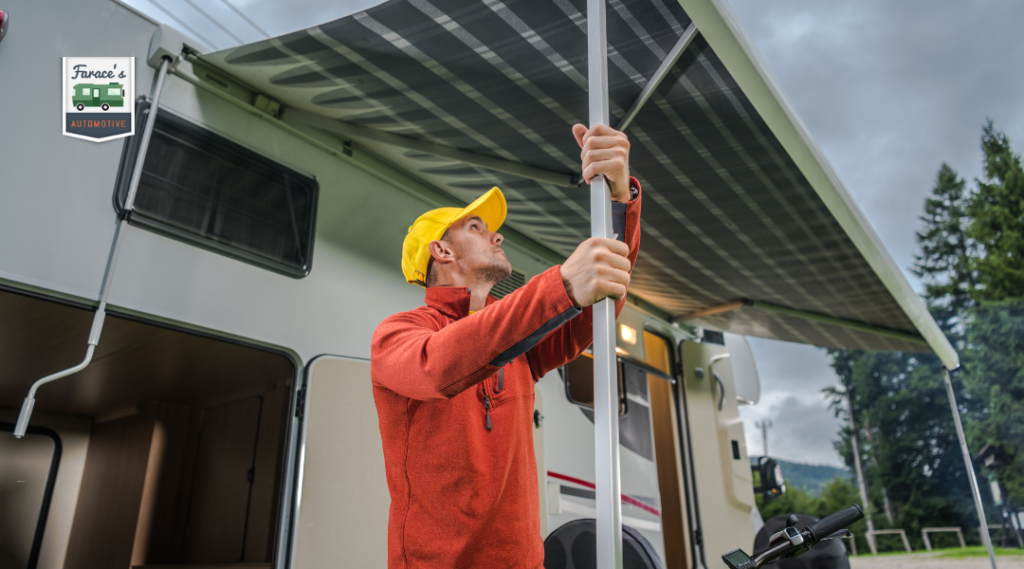
Regular inspections can identify potential issues before they become major problems. This service includes checking:
- Brakes and Tires: Ensures your safety on the road.
- Plumbing Systems: Confirms everything is in working order.
- Electrical Systems: Verifies all appliances and lights function correctly.
Using a trusted shop minimizes the risk of breakdowns and ensures a smoother trip.
Essential Pre-Trip Preparations
Before hitting the road in your RV, proper preparation is key to a successful adventure. Focusing on what you pack, how you plan your route, and understanding your vehicle will enhance your comfort and safety during your trip.
Packing Smart: Must-Have Gear for Your RV Adventure
Packing efficiently can make your trip enjoyable. Essential gear includes:
- Cooking Essentials: Bring pots, pans, utensils, and dishes. Don’t forget dish soap and towels.
- Bedding and Linens: Include sheets, pillows, and towels for each person.
- Safety Gear: A first-aid kit, fire extinguisher, and emergency road kit should be packed.
- Personal Items: Toiletries, medications, and favorite games or books should also go with you.
- Outdoor Gear: Outdoor chairs, grill, and any sports equipment will enhance your experience outside.
Create a checklist to ensure you don’t forget anything. Pack according to the number of days you’ll be on the road, and think about the activities you plan to do.
Route Planning: Best Apps and Resources for RVers
Planning your route is crucial for a smooth journey. Use reliable apps and resources designed for RV travelers.
- Google Maps is excellent for finding your way. Check for RV-friendly routes and avoid low bridges.
- Roadtrippers can help discover attractions, parks, and places to stay along your route.
- Allstays provides information on campgrounds, rest areas, and RV parks, which can be vital for overnight stops.
- Waze is useful for real-time traffic updates and avoiding delays.
Before you leave, map out your stops and consider how long you will drive each day. This will help prevent fatigue and give you time to enjoy the journey.
Vehicle Walkthrough: Testing Systems Before You Go
Performing a thorough vehicle walkthrough is essential for safety. Check these systems before departure:
- Tires: Inspect tire pressure and tread depth. Ensure your spare tire is ready, too.
- Brakes: Test the brakes in a safe area to confirm they respond properly.
- Lights and Signals: Check all headlights, taillights, and turn signals to ensure visibility.
- Water and Waste Systems: Test faucets for hot water and check the toilet for proper function.
- Electronics: Ensure power connections and battery levels are adequate for your needs.
Doing this will help you catch any issues early, adding peace of mind as you prepare for your RV journey.
Driving and Handling Your RV Safely
Navigating your RV requires awareness and practice. From maneuvering in tight spaces to understanding vehicle restrictions, safety is key. Here are essential considerations for first-time RV drivers.
Tips for First-Time RV Drivers: Maneuvering and Parking
Driving an RV can feel daunting at first. Here are some tips to help you:
- Practice Makes Perfect: Before hitting the road, practice driving in an open area. This will help you get used to the size and handling of your RV.
- Use Your Mirrors: Always check your mirrors to be aware of your surroundings. Larger vehicles can have significant blind spots.
- Take Wide Turns: Remember, your RV is wider than a regular car. Make sure to take wider turns to avoid scraping the sides.
- Park Smart: Look for RV-specific parking areas. When parking, always secure the vehicle by using the parking brake and checking your surroundings.
- Align Your Wheels: When parking on an incline, turn your wheels towards the curb to prevent rolling.
Understanding Height, Weight, and Road Restrictions
Every RV has specific height and weight limits. Knowing these limits is vital for safe driving. Here’s what you need to consider:
- Check the Specs: Familiarize yourself with your RV’s height and weight. This information is often found in the owner’s manual.
- Observe Signage: Pay attention to road signs that indicate height and weight limitations. Avoid routes with low bridges or weight-restricted roads.
- Weight Distribution: Load your RV evenly to maintain balance. This can prevent swaying while driving.
- Towing Guidelines: If you’re towing a vehicle or trailer, know its weight. Ensure your RV can safely handle the extra load.
Emergency Preparedness: What to Do in Case of Breakdowns
Breakdowns can happen, so being prepared is crucial. Here’s how to handle such situations:
- Stay Calm: If something goes wrong, pull over safely to avoid traffic. Activate your hazard lights.
- Emergency Kit: Keep an emergency kit in your RV. This should include a first aid kit, flashlight, tools, and basic supplies.
- Know Contact Numbers: Keep a list of roadside assistance numbers handy. It’s wise to have your insurance information accessible as well.
- Roadside Assistance: If you need help, contact roadside assistance. Inform them about your location and the nature of the issue.
By following these guidelines, you can drive and handle your RV safely, ensuring a better experience on the road.
Campground Etiquette and RV Parking Tips
When you rent an RV for the first time, knowing proper campground etiquette and how to park effectively is essential. Being considerate of others and understanding the basics of campground facilities will enhance your experience.
How to Choose the Right Campground for Your RV
Choosing the right campground for your RV is key to a great trip. Start by checking if the campground can accommodate your RV’s size. Many campgrounds have specific size limits, so it’s wise to confirm in advance.
Look for campgrounds that offer amenities you find important, such as showers, laundry facilities, or Wi-Fi. You may also want to consider locations near nature trails, lakes, or attractions.
Lastly, read reviews from other RV campers. Fellow travelers often share valuable insights about the campground’s facilities and atmosphere.
Hookups Explained: Water, Electricity, and Sewage
Understanding RV hookups is crucial for a comfortable stay. Most campgrounds offer three primary hookups: water, electricity, and sewage.
- Water: This allows you to refill your freshwater tank. Always check the hose for cleanliness before connecting it to your RV.
- Electricity: Campgrounds usually provide 30 or 50 amp electric service. Know your RV’s requirements to avoid using excessive power.
- Sewage: A dump station is often available for emptying your wastewater. Never dump sewage on the ground, as it harms the environment.
Having these hookups set up correctly ensures comfort and convenience during your camping experience.
Leave No Trace: Respecting Nature and Fellow Campers
Practicing “Leave No Trace” principles is essential for keeping campgrounds clean. Always clean up after yourself and properly dispose of trash. Use designated waste disposal sites for garbage and recycling.
Be mindful of noise levels, especially during quiet hours. Keep the volume down on music and conversations. Respect your neighbors’ space by avoiding shortcuts through their campsites.
Additionally, if you have pets, keep them leashed and clean up after them. Following these guidelines helps everyone enjoy the outdoors while preserving nature for future campers.
Maintenance and Troubleshooting on the Road
When you’re on the road, maintaining your RV is crucial for a smooth journey. Understanding basic maintenance checks and being aware of common issues can save you time and stress. Knowing when to reach out for professional help is also key.
Basic RV Maintenance Checks Every Renter Should Know
Before hitting the road, perform essential checks. Start with your tire pressure. Ensure they’re inflated to the recommended levels. Low pressure can lead to blowouts and accidents.
Next, check the fluid levels. Monitor the engine oil, coolant, and brake fluid. Low levels can result in poor performance and potential breakdowns.
Inspect the battery. Look for corrosion and ensure terminals are tight. A reliable battery is crucial for starting your RV.
Don’t forget the lights. Test all headlights, brake lights, and turn signals to ensure visibility on the road.
Finally, review your propane levels. If you plan to use propane appliances, make sure you have enough for the trip.
Common RV Issues and Quick Fixes
Despite your best efforts, issues may arise. One common problem is leaks. If you notice water damage, locate the source immediately. For minor leaks, use sealant as a temporary fix until you can address it properly.
Another frequent issue is a flat tire. If this happens, find your spare and the necessary tools. You can change the tire by loosening the lug nuts, raising the vehicle with a jack, and replacing the tire.
If the air conditioning isn’t cooling, check the thermostat settings. Dirty filters can also block airflow, so clean or replace them if necessary.
For electrical issues, reset your circuit breakers. Sometimes, a simple reset can restore power to your appliances.
When to Call Farace Automotive & R.V. Center for Professional Help
Certain problems require a professional touch. If you experience a serious engine issue or warning lights on your dashboard, don’t hesitate to seek help. Ignoring these signs can lead to major repairs.
If you have persistent leaks or plumbing issues, contacting a service specializing in RV repair can save you from bigger headaches. They can assess damage and fix it correctly.
Additionally, if you’re unsure about any maintenance task or repair, reach out to Farace Automotive & R.V. Center. Their expertise can guide you through any tricky problems you face on the road.
Returning Your RV: Post-Trip Best Practices
Returning your RV properly is important to avoid extra charges and ensure a smooth experience. Following a few best practices can help you manage the return effectively and maintain a good relationship with your rental company.
Cleaning and Refueling: Avoiding Extra Fees
Before returning the RV, focus on cleaning and refueling. Start by removing all personal items and trash from the interior. Wipe down surfaces, including the kitchen and bathroom, to leave it tidy.
Next, ensure that the fuel and propane tanks are filled to the required levels. Most rental companies expect the RV to be returned with a full tank. Failing to do so may result in additional fees. You can keep track of your fuel usage during the trip to make refueling easier.
Make sure to empty and clean the waste tanks. This step is often overlooked but is critical to avoid extra charges. Check specific rental instructions for guidance on waste disposal.
Reporting Damage: Honesty Saves Future Renters
If you notice any damage during your trip, it’s best to report it right away. Document the damage with photos and inform the rental company. Being honest about any issues helps maintain trust and transparency.
Ignoring damage or attempting to hide it can lead to more significant consequences. It may result in higher repair costs than if you report it immediately.
Communicate clearly about any accidents or wear and tear the RV sustained during your trip. This practice not only protects you but also helps future renters enjoy a well-maintained RV.
Feedback Matters: Sharing Your Experience
After returning the RV, consider providing feedback to the rental company. Sharing your experience helps improve their services and supports other renters.
You can leave a review on websites like Yelp or their company page. Discuss both positive aspects and areas for improvement. Companies appreciate knowing what worked well and what needs attention.
Your feedback can also include suggestions for better instructions or features. This engagement fosters a better experience for future renters and enhances the overall service quality.

